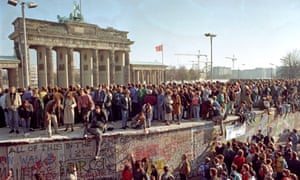Hope Vs Reason
Najam Sethi in The Friday Times
The economy is in tatters, inflation and joblessness are stalking the landscape. Both western and eastern borders are insecure – a civil war is threatening to spill over one border while an invigorated predator is sizing up its prey on the other. Terrorism/insurgency in Balochistan is barely manageable even as another threatens to shatter the newfound peace of FATA. Hounded to the wall, the mainstream opposition is inching towards mass agitation. Yet the PTI government of the day – hanging by an arrogant and unaccountable puppeteer’s thread — is bent upon imprisoning popularly elected leaders of Sindh, Punjab and FATA, blackmailing the NAB Chairman to do its bidding, prosecuting an honourable judge who dares question the writ of the puppeteer, extinguishing a rising star from lighting the path of the opposition and gagging the media from speaking the truth. Under the circumstances, can we shut our minds to reason and hope that all will be well? Or will defiance trump logic and set things right?
The Afghan Taliban are not likely to concede core American demands. In time, the Americans will blame Pakistan for not doing more to bail them out. President Trump has already teamed up with PM Modi to contain, if not confront, Pakistan’s lifeline ally China. Before long, both will turn the screws on Pakistan, the former via the US Treasury’s manipulation of the IMF and FATF and the latter by priming its “offensive-defense” proxy war doctrine. This will transpire when the ruling Puppeteer–PTI clique stands totally alienated and isolated from most sections of state and society.
The confrontation in FATA between the “patriotic” army and “treasonous” populace may get worse. Both sides have wantonly crossed red lines. In the heat of the moment, the protestors tried to overrun a security check post. The army shot and killed several of them. Next time, the protesting crowds will be bigger. If a new insurgency is born, it will doubtless be aided and abetted on a bigger scale by hostile neighbours.
The NAB chairman was spoiling to be hoist on his own petard. But the PTI exploited his weakness to advance its anti-opposition agenda. Now, if he throws in the towel and the government is successful in empowering its hand-picked Deputy Chairman, then there will be more confrontation, more repression, more political instability, more economic chaos. It is remarkable, isn’t it, that the media managers of the government, in cahoots with a civilian intel agency, should have successfully staged such a coup? No wonder, the government is adamant in denying a proper investigation into L’Affaire Chairman!
The decision to target a Supreme Court judge and teach a suitable lesson to other wayward judges was expected. The good judge had dared to tick off the Intel Agencies and seemed inclined to read out the “democracy” sections of the constitution to them. Horror of horrors, he was also lined up in due course to rule as the chief justice of Pakistan for many years. Confronted by leaked reports of a Presidential Reference to the Supreme Judicial Council to defame him, he has demanded to know the veracity of the reports. The Additional Attorney General in Karachi has resigned in protest. If other judges don’t resist such machinations, the peoples’ struggle for an independent judiciary will be lost. Certainly, there is at least one other judge who may be on the hit-list for ruffling the untouchable feathers of certain VIP housing societies across the country.
Next in line is the Election Commission of Pakistan. Having advisedly taken a soft look at the shenanigans of the Prime Minister, it is now being pressured to take a hard stance against Mariam Nawaz Sharif. If it does the government’s bidding, it will join the queue of discredited state institutions that are paving the way for societal anarchy and states of siege.
The worrying future is already upon Pakistan. The US is gearing up India and others to confront and contain China in the Asia-Pacific and Asia-West region. China’s Road and Belt project, in general, and CPEC, in particular, will be targeted. It is also engaged, along with Saudi Arabia, UAE and others in trying to force regime change in Iran as a prelude to redrawing the map of the Middle-East. This makes Pakistan’s third southern border vulnerable. It also threatens to open deep sectarian divisions within the country.
Wiser counsel would surely advise a contrary path. A national all-parties government headed by a stolid prime minister who can disarm domestic critics, build trust with prickly neighbours, manage the economy dispassionately and herald certainty and stability would do Pakistan much good. Such a dispensation would heal the wounds between provinces, between state institutions, between political parties, between classes and ethnicities, between Pakistan and its neighbours while pulling the economy out of its current trough. A nation united and at peace with itself is bound to be a nation united and at peace with the rest of the world. More than anything else that is the need of the hour.
Will hope be rekindled at the altar of realism? Or will despair be our lot when reason is sacrificed?





